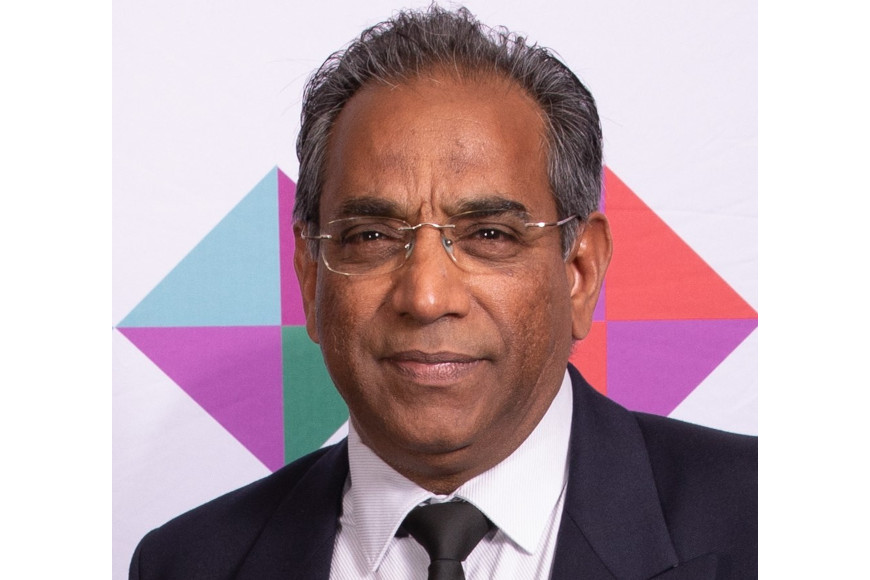Science fundis who love learning about electrons are invited to the much-anticipated 7th International Symposium on Electrochemistry. This electrifying event takes place from 13 to 16 April 2025 at the Maharani Hotel in Durban, KwaZulu-Natal. The prestigious event is being organised by ElectrochemSA-the Electrochemistry Division of the South African Chemical Institute (SACI) and will be hosted by the Durban University of Technology (DUT).
Giving more insight into the esteemed event is Professor Krishna Bisetty, the Chairperson of the 7th International Symposium. He is a Full Professor in the Department of Chemistry at DUT. As an NRF C1 rated scientist and an experienced science educator with 33 years of teaching experience at DUT. He leads the Computational Modelling and BioAnalytical Chemistry research group, with strong national and international collaborations. He is a co-author of over 130 international papers, 10 book chapters, a supervisor to over 30 masters and doctoral students and more than six postdoctoral fellows. He served on several Conference Organising Committees and his work presented at local and international conferences. Adding to his list of accolades is his present role of Chairperson of the electrifying symposium and what his role entails.
“This biennial event rotates locations, and in 2023, it was unanimously agreed that Durban will host the symposium in 2025. The selection was based on our research track record in electrochemistry. So, its an honour and privilege to host such a prestigious event,” he conferred.
Secondly, his role as the chairperson involves facilitating planning and coordination. He had helped to form a local organising committee with volunteers from DUT and UKZN. Prof Bisetty’s role enables him to work closely with the secretariat of SACI, Mrs Laila Smith and the current and past chairs of ElectrochemSA. Prof Bisetty highlighted, “I also liaise with the leaders in the field. I oversee the logistical arrangements, including the venue, programme, resources, and sponsorships. I am coordinating with plenary and keynote speakers and other key participants to ensure their availability and preparedness”.
Prior to that, Prof Bisetty’s role as Chairperson was to ensure that the symposium’s theme and content align with the goals of the organisation and the interests of the attendees. “I, together with the scientific organizing committee, are reviewing and selecting abstracts to be included in the programme. We will be leading the symposium sessions, introducing speakers, and guiding discussions to ensure they remain on track and productive,” he said.
In terms of networking for the symposium, Prof Bisetty indicated that he looks forward to fostering connections among attendees, speakers, and sponsors to promote collaboration and knowledge sharing. We will be acting as representatives of the symposium to build relationships with stakeholders and potential partners. Prof Bisetty emphasised that as a leader, the guidance provided, will also set the tone for the event, ensuring that it runs smoothly and achieves its objectives. By facilitating discussions and networking opportunities, the objective is to help create an interactive and collaborative environment. “I believe that the role as the chairperson is vital in shaping the symposium’s overall impact and ensuring it meets the expectations of all participants,” he emphasised.
Some of the highlights that will be discussed at the symposium pertain to electrochemistry, a dynamic and interdisciplinary field that explores the interactions between electrical energy and chemical changes, encompassing a wide range of applications. “The symposium will provide a forum for researchers working in the field of electrochemistry and related topics to share and discuss the latest developments in electrochemistry research and create collaboration opportunities,” he conveyed.
The main scientific themes included at the symposium revolve around sensors and biosensors; electroanalytical chemistry; electrochemistry for water treatment, energy, environment, food, process industries; electrocatalysis; electrochemistry of materials and computational electrochemistry.
Prof Bisetty indicated that the ENVISION2030 strategic objectives of DUT focuses on creating a transformative and sustainable future through four key perspectives: stewardship, systems and processes, sustainability, and society.
“In terms of stewardship, as the chair of the symposium, I can help to nurture a people-centred culture by providing resources and tools that embody DUT’s values and principles. This includes supporting initiatives that promote collective responsibility and accountability,” he added.
He further expressed that in terms of society, he hopes to assist in fostering an engaged university community by providing tools and resources that enhance student experiences and support holistic development.
Going forward, the objectives to be achieved from this symposium is to provide a forum where researchers in the field of electrochemistry can exchange ideas on their ongoing research. The symposium aims to facilitate ample networking opportunities with industry partners, fostering collaborations. Prof Bisetty emphasised the importance of interaction between delegates and industry representatives.
The Local organising committee (LoC) members are Prof K Bisetty (Chair), Dr V Paul; Ms CT Gwamanda, Ms NM Xhakaza, Dr T Mokhothu, Dr Gloria Uwaya, Dr P Hloma and Dr A Bissessur (UKZN). For more information on the symposium, go to: https://www.saci.co.za/ElecrochemSA/7th_home.html
Pictured: Professor Krishna Bisetty, the Chairperson of the 7th International Symposium on Electrochemistry.

